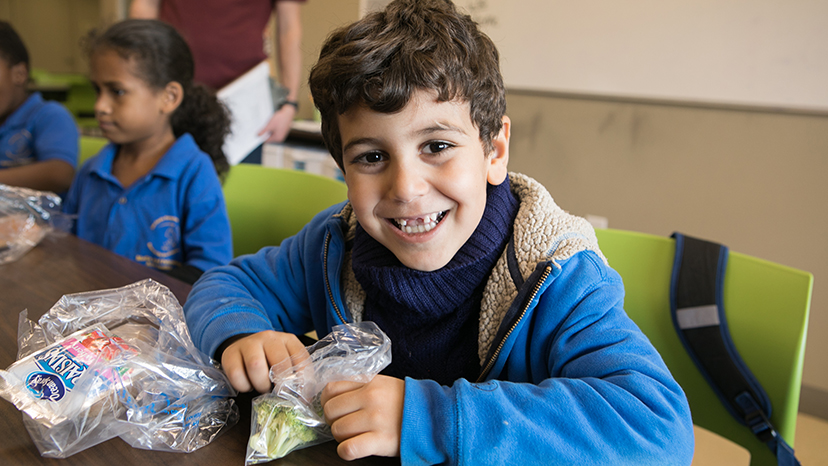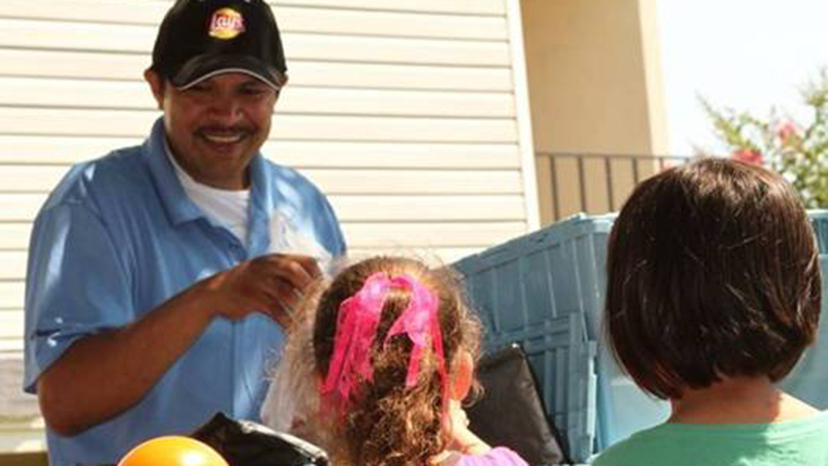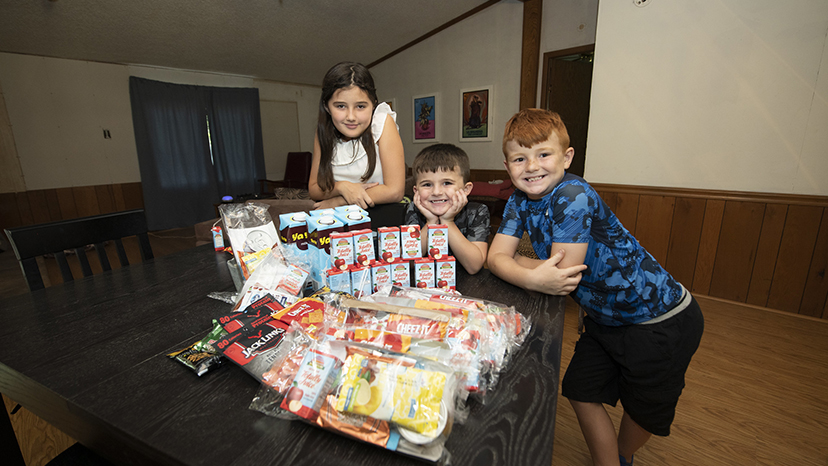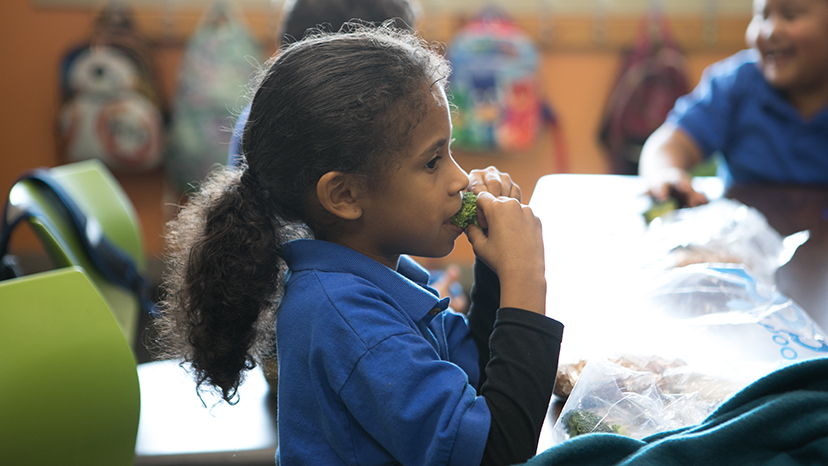In March, as COVID-19 shelter-in-place orders rolled out countrywide, Matt Smith started making phone calls. He knew some folks would be making heart-wrenching choices between buying groceries or paying their utility bills.
In his role as Senior Director of the PepsiCo Foundation, Matt manages Food for Good, the acclaimed program that strives to make nutritious food physically and financially accessible to low-income families across the U.S. Matt knew it was his job to create
solutions. So he dialed up his network of government, non-profit and community contacts in order to pivot the hunger-fighting program for this uncertain new normal. “I felt 100% accountable,” he says.
The isolation of lockdown created a deeper crisis for the one in four children in the U.S. who are at risk for going hungry. As many kids were cut off from school and community programs, they no longer had access to daily meals they relied upon —
meals Food for Good has provided for 11 years.
“We have food insecurity in numbers that just got multiplied due to COVID,” Matt says. “Our job is to reach those kids — kids who don’t have choices.”
It’s a mission he’s pursued vigorously since 2009. Matt first joined PepsiCo in 2007, drawn by the opportunity to work in environmental sustainability, but soon found himself imagining ways the company could address food insecurity and poverty,
planting the seeds of what would become Food for Good. “My work at PepsiCo is pursuing purpose every day,” he says.

A boy enjoys lunch provided by Food For Good. | 
Pedro Garcia, one of Food for Good’s longest-serving team members, passes out food in the program’s early days. |

Children with a Food For Good shipment from earlier this year. | 
A girl in Dallas samples some broccoli. |
It’s a mission he’s pursued vigorously since 2009. Matt first joined PepsiCo in 2007, drawn by the opportunity to work in environmental sustainability, but soon found himself imagining ways the company could address food insecurity and poverty,
planting the seeds of what would become Food for Good. “My work at PepsiCo is pursuing purpose every day,” he says.
My work at PepsiCo is pursuing purpose every day.
Nevertheless, Food for Good’s early days were challenging. On one 103-degree June afternoon, Matt arrived at a southern Dallas park bordered by low-income housing, not far from his Lake Highlands community. He’d anticipated droves of hungry
kids lining up for the free boxed lunches and juices he’d brought — but none came. Matt worried that the program wouldn’t make it through summer.
“Once we started talking to some of the kids in the area, we learned that their mom was at work and they weren’t allowed to leave the gates of their apartment complex,” he says. The fix was simple: roll his van inside the gates. “We
had 150 kids come that day,” he says. “That’s when I knew we were on to something.”
Matt took away a lesson he says has become a guidepost of Food for Good: “If we can listen to what the real needs are and not just what makes sense in a conference room, we could land on a model that would serve these kids.”
Food for Good now reaches hundreds of thousands of vulnerable children in big cities, small towns and rural areas alike every single day. Since inception, the initiative has delivered 45 million meals while also creating hundreds of jobs in the more than
20 communities it serves. “PepsiCo has the largest food-moving fleet in the U.S.,” Matt notes. “We can move food to every corner of the country.” Food for Good aims to launch in Chicago and New York City by the end of 2020,
with a global expansion to follow.
During the pandemic when children weren’t able to leave home, the program’s team became even more industrious, packing up two weeks of shelf-stable meals and delivering them directly to families’ doorsteps from Alaska to Puerto Rico.
Between May and August, Food for Good shipped approximately 6.5 million meals through this new approach while much of the country was shut down. It has provided 15 million meals so far this year, already doubling last year’s total.
I’ve grown up dreaming that business could be done this way.
“I’ve grown up dreaming that business could be done this way — that it’s possible to do good as the way you do business each day,” Matt says.
Each child that Matt meets reminds him why this work is so important. He remembers one 11-year-old girl he encountered that very first summer back in 2009: He was distributing lunches in the midday swelter, and she approached hand-in-hand with her younger
siblings, hoping she could find something for them all to eat.
“She should not have those kinds of adult responsibilities — not knowing where a meal is going to come from,” Matt says, his voice breaking with emotion. “If our systems are not meeting that basic need, then we’ve got some
work to do. I think companies like PepsiCo are in a place where we can do an incredible amount of good.”